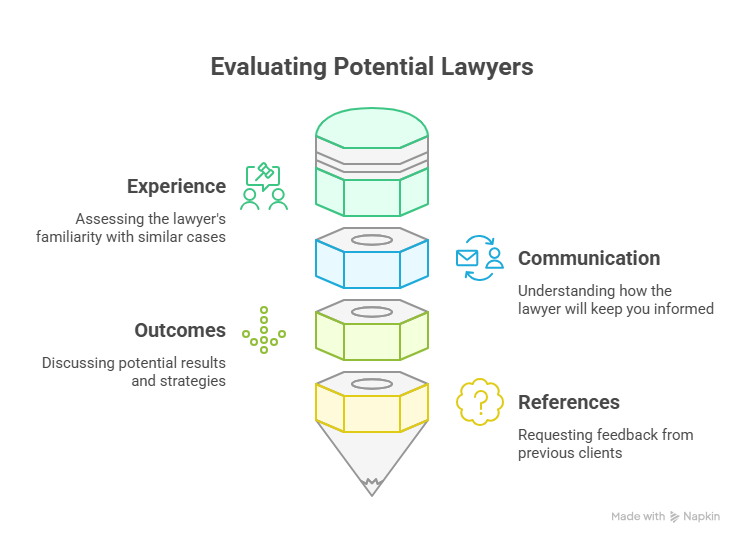Did you know that a significant number of individuals face legal issues every year, with some estimates suggesting that nearly 40% of adults in the United States encounter a legal problem annually? Navigating these issues often requires the expertise of a qualified lawyer.
Hiring the right legal professional can be daunting, especially for those unfamiliar with the legal process. This article aims to guide you through the process, providing tips for hiring a lawyer and a comprehensive checklist to ensure you make an informed decision.
We’ll explore key factors to consider, including a lawyer’s expertise, and communication style, to help you find the best fit for your legal needs.
When Do You Need Legal Representation?
Determining the right time to hire a lawyer can be challenging, but there are common situations where legal representation is highly recommended. Legal issues can arise unexpectedly, and having professional legal counsel can make a significant difference in the outcome of your case.
Common Situations Requiring a Lawyer
There are several situations where hiring a lawyer is not just beneficial but necessary. These include:
- Personal injury cases where you need to claim compensation for damages.
- Divorce proceedings that involve complex asset division or child custody battles.
- Business disputes, such as contract disagreements or partnership conflicts.
- Criminal charges, where a lawyer can provide a strong defense.
Benefits of Professional Legal Counsel
Seeking professional legal counsel offers numerous benefits. A lawyer provides expert advice based on their knowledge and experience, helping you navigate complex legal processes. They ensure that your rights are protected and represent you in court, advocating on your behalf.
Moreover, a lawyer can help you understand the legal implications of your decisions and guide you through negotiations or settlements. Their representation can significantly impact the outcome of your case, often leading to more favorable results.
How to Hire a Lawyer: Step-by-Step Process
The process of hiring a lawyer can be streamlined by understanding your legal needs and researching potential attorneys. This systematic approach ensures that you find a lawyer, who is well-suited to handle your case effectively.
Identifying Your Specific Legal Needs
Before starting your search, it’s crucial to identify the specific area of law your case falls under. Legal needs can vary widely, from family law and personal injury to business law and estate planning. Understanding your needs will help you narrow down your search to lawyers who specialize in the relevant field.
Consider the complexity of your case and whether you need a lawyer with specific experience or skills. This self-assessment will guide you in choosing the right lawyer, for your situation.
Researching Potential Attorneys
Once you’ve identified your legal needs, the next step is to research potential attorneys. You can start by asking for referrals from friends, family, or colleagues who have had similar legal issues. Additionally, online directories and bar association websites can provide valuable resources for finding qualified lawyers.
It’s also beneficial to check online reviews and ratings to gauge a lawyer’s reputation and client satisfaction. This research will help you compile a list of potential lawyers to consider further.
Checking Credentials and Experience
After compiling a list of potential lawyers, it’s essential to check their credentials and experience. Verify their qualifications by checking their education, bar membership, and any certifications relevant to their practice area.
Experience is also a critical factor; look for lawyers with a proven track record in handling cases similar to yours. This step is vital in ensuring that you’re choosing the right lawyer with the necessary expertise.
Preparing for Initial Consultations
Many lawyers offer initial consultations, which are an opportunity to assess their suitability for your case. Prepare for these meetings by gathering all relevant documents and information related to your case.
Come with a list of questions to ask, such as their approach to your case, their experience with similar cases, and their fee structure. This preparation will help you make an informed decision when choosing the right lawyer, for your needs.
Evaluating the Right Attorney for Your Case
The process of finding the ideal lawyer involves a thorough evaluation of several key factors. This step is crucial in ensuring that you hire a lawyer who is not only qualified but also a good fit for your specific legal needs.
Essential Questions to Ask Potential Lawyers
When consulting with potential lawyers, it’s vital to ask the right questions. This helps you understand their approach, experience, and how they can assist you with your case. Some essential questions to consider include:
- What experience do you have with cases like mine?
- How will you communicate with me throughout the legal process?
- What are the potential outcomes of my case, and how will you work to achieve the best result?
- Can you provide references or testimonials from previous clients?

Asking these questions will give you a clearer understanding of the lawyer’s expertise and their ability to handle your case effectively.
Understanding Fee Structures and Agreements
Understanding how a lawyer charges for their services is crucial. Different lawyers may have various fee structures, such as hourly rates, flat fees, or contingency fees. It’s essential to:
- Clarify the fee structure during your initial consultation.
- Understand what services are included in the fee.
- Ask about any additional costs or expenses you might incur.
Ensuring you have a clear understanding of the financial aspects will help you make an informed decision and avoid any unexpected expenses.
Assessing Communication Style and Compatibility
The way a lawyer communicates with you is just as important as their legal expertise. You need a lawyer who is responsive, clear, and compatible with your communication style. Consider:
- How promptly they respond to your inquiries.
- How well they explain legal concepts and keep you informed.
- Whether you feel comfortable discussing your case with them.
A good lawyer-client relationship is built on trust and effective communication.
Red Flags to Watch For
During your evaluation, be aware of potential red flags that could indicate a lawyer is not the right fit. These include:
- Lack of transparency about their fees or the legal process.
- Poor communication or unresponsiveness.
- Overconfidence or a lack of humility in their approach.
Recognizing these red flags early can save you time and help you avoid potential pitfalls in your legal journey.
Conclusion
Finding the right lawyer can be a daunting task, but with careful consideration and research, you can make an informed decision to hire legal counsel, that meets your needs.
By identifying your specific legal needs, researching potential attorneys, and evaluating their credentials and experience, you’ll be well-equipped to find a lawyer who understands your situation and can provide the best possible representation.
When selecting a lawyer, it’s essential to assess their communication style, fee structures, and compatibility to ensure a successful partnership. By doing so, you’ll be able to navigate the legal process with confidence and achieve the best possible outcome for your case.
Ultimately, hiring the right legal counsel can make a significant difference in the outcome of your case. Take the time to follow the steps outlined in this article, and you’ll be on your way to finding a lawyer who can provide the expertise and guidance you need.
FAQ
What are the key factors to consider when hiring a lawyer?
When hiring a lawyer, consider their expertise, experience, and communication style to ensure they meet your specific legal needs.
How do I identify my specific legal needs?
To identify your specific legal needs, determine the type of case you have, such as personal injury or divorce, and consider what you want to achieve with the help of a lawyer.
What are the benefits of seeking professional legal counsel?
Seeking professional legal counsel provides expert advice, protects your rights, and offers representation in court, ensuring you receive the best possible outcome.
How do I research potential attorneys?
Research potential attorneys by checking online reviews, asking for referrals, and verifying their credentials and experience in handling cases similar to yours.
What questions should I ask during an initial consultation with a lawyer?
During an initial consultation, ask questions about the lawyer’s experience, their approach to your case, fee structures, and communication style to assess their suitability.
How do I understand fee structures and agreements?
Understand fee structures by asking about the lawyer’s billing method, such as hourly or flat fee, and carefully review the agreement before signing.
What are some red flags to watch out for when hiring a lawyer?
Be cautious of lawyers with poor communication, unprofessional behavior, or unrealistic promises, as these can be indicators of potential issues.
How important is a lawyer’s communication style?
A lawyer’s communication style is crucial, as you need to feel comfortable discussing your case and confident that they will keep you informed throughout the process.
Can I change lawyers if I’m not satisfied with my current representation?
Yes, you can change lawyers if you’re not satisfied, but consider the potential impact on your case and the costs associated with switching legal representation.

